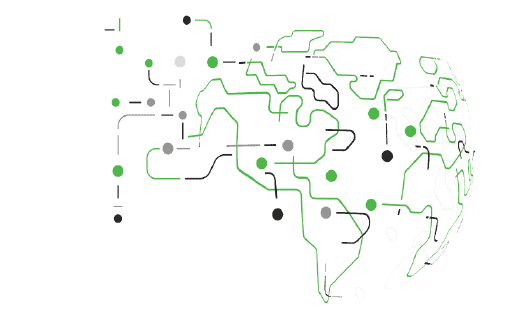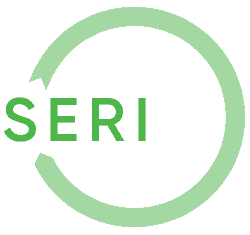TEST. REPAIR. REUSE. RECYCLE.
R2 IS SETTING THE STANDARD FOR USED ELECTRONICS,
EVERY STEP OF THE WAY.
AS THE WORLD’S MOST WIDELY ADOPTED STANDARD FOR RESPONSIBLE
PRACTICES FOR USED ELECTRONICS, R2 IS GUIDING THE WORLD THROUGH
THESE DIFFICULT “WHAT, HOW, AND WHO” CHOICES.
A powerful tool that provides strong guidance through these complex decisions,
R2 takes a decidedly different approach.
R2 is a roadmap, not a hammer.
Instead of building barriers, R2 is designed to create solutions that make real business sense, both for facilities and for those looking to manage their used electronics responsibly and sustainably.
R2 allows for flexibility
without sacrificing responsibility.
It’s global, applicable to all types of facilities regardless of their size, expertise or where in the world they are located. Because at the end of the day, doing the right thing knows no boundaries.
R2 is comprehensive,
addressing the full reverse supply chain from first use through end-of-life and includes environmental, health & safety, quality, and data security standards, all in one package.
ARE YOU A FACILITY CONSIDERING
R2 CERTIFICATION?
Learn what other facilities around the globe already know.
Beyond providing a real point of differentiation and adding credibility to facilities around the world, R2 Certification opens doors to business opportunities that otherwise remain locked. Increasingly, customers are demanding certification from their potential partners as a cost of entry to doing business, and R2 Certification is a powerful way to satisfy those requirements.
R2 IS THE MOST WIDELY ADOPTED STANDARD FOR USED ELECTRONICS AND WITH THE LATEST VERSION, R2v3, IT CONTINUES TO SET THE STANDARD FOR ELECTRONICS REUSE AND RECYCLING WORLDWIDE.

IN R2v3,
THE WORLD’S MOST WIDELY ADOPTED
Electronics Sustainability Standard Gets A Powerful Upgrade
In June 2020, the SERI Board of Directors formally adopted the next evolution of the R2 Standard, R2v3, now approved as an American National Standard by ANSI.
Since the revision process began nearly five years ago, members of the R2 Technical Advisory Committee (TAC) have devoted more than 5100 volunteer hours to addressing more than 900 challenging and complex issues, many of which, were submitted by customers, industry members and the public. The representation of many different stakeholder groups on the TAC, and the 660 comments received during two public comment periods has resulted in a strong standard well positioned to address the evolving needs of an increasingly diverse industry.
Trust earned through transparency….
You don’t have to wonder how R2 Certified facilities get their certifications.
We’ll happily tell you.
R2 Certified facilities are independently audited and certified, and it is this separation that allows us to be fully invested in outcomes.
As the housing body for the R2 Standard, SERI has created a process for R2 certification that injects and preserves independence from the outset. We strongly believe that this process is the only way to ensure R2 Certification remains a true marker of conformance.
Like many other well-known standards, R2 Facilities are audited by the Certification Bodies who decide whether a facility meets the R2 Standard. SERI certifies the Certification Bodies, who in turn certify the facilities. Neither SERI nor R2 have any approver role in facility-level certification decisions, which preserves objectivity and integrity.
Choosing an R2 Certified partner
doesn’t just make you environmentally responsible.
It also makes you business-responsible.
Aligning with R2 Certified partners doesn’t only help protect the environment. It also helps protect your business and your customers from data, health, safety and environmental risks. And using R2 Certified facilities demonstrates a social commitment to customers, employees and shareholders.
Finding the right partner to process your used electronics can be challenging because they come in different types and sizes, requiring different types of processing. That’s why it often takes a network of what we call downstream vendors to process all the different types of electronics. R2 Certification covers the primary facility and all of their downstream vendors, delivering the confidence to know that your electronics will be responsibly reused or recycled at every step along the way. Check the full list of R2 Certified facilities to find the right partner for you.
Sometimes customers have large volumes of like products or have special requirements that call for enhanced processing methods or protocols. While any R2 Certified facility will responsibly manage the electronics, R2v3 now makes it easier to identify facilities that match specific processing needs. Here are common channels that we have matched with the R2v3 Specialty Processes to better fit these needs.
In those cases, look for R2 facilities certified to appendix B which include enhanced data destruction processes that can provide tracking down to the serial number level.
You can use R2v3 Certification as a tool to qualify your vendors and gain confidence for your business that returns, warranties, and trade-ins are being responsibly processed to protect your brand and reputation, as well as your legal liabilities. For these business streams, you should ensure your returns are going to a facility that is R2v3 Certified to Appendices B & C.
So, getting maximum value for those assets just makes good business sense. But the return needs to be balanced against risk, because those electronics also contain data that needs to be protected. And, customers are increasingly demanding that businesses act in more socially responsible ways. Besides the obvious impacts of data breaches, having your used electronics show up in an electronic graveyard in some remote part of the world can be incredibly damaging to your brand.
On the flip side, handling your used electronics utilizing sustainable practices can be a strong proof point of your commitment to being a socially responsible business, not just environmentally, but also socially by providing affordable used electronics to the developing communities around the world. Looking at the whole landscape, you should recover a good value for your used electronics that can be legitimately reused, but you should not sacrifice your whole business for the additional margin you can get by auctioning your broken or obsolete electronics to the highest bidder.
Partnering with R2 Certified facilities certified to Appendix C gives businesses the confidence to know that all the different risks associated with maximizing your returns are minimized.
However, if you are a business that deals with a larger volume of used electronics that have little remarketing value, you might benefit from choosing an R2 facility that is certified to Appendix E – Materials Recovery. Whereas some R2 Certified facilities utilize a downstream network of partners to process their scrap, R2 facilities certified to Appendix E are certified to process recycling in house, including dismantling, separation, and recovery. Since there is less transport involved and fewer hands in the pie, using a facility with in-house capabilities can be more efficient and cost advantageous for businesses that deal with higher volumes of old electronics.
R2v3 offers a new path to recognize the legitimate reuse of specialized equipment, because specialty equipment like telecom, medical, scientific, and other commercial grade electronics require a different approach and expertise than our consumer products. Appendix D – Specialty Electronics Reuse recognizes those facilities capable of responsibly managing this type of equipment from de-installation and getting it back into use. Businesses decommissioning this type of equipment should look for Appendix D Certification of R2 Certified facilities that are potential vendors.
Customers looking for specialized equipment can have increased confidence in the quality and functionality of the products purchased when buying from R2 Certified facilities certified to Appendix D.
